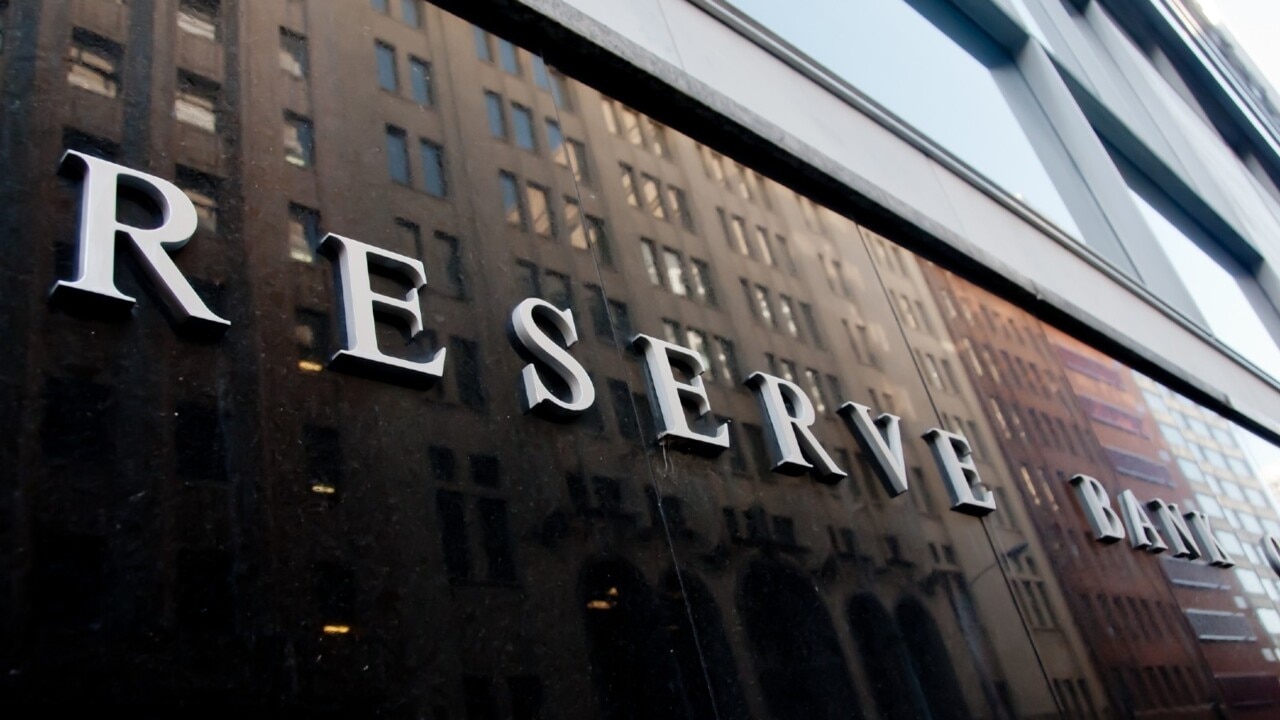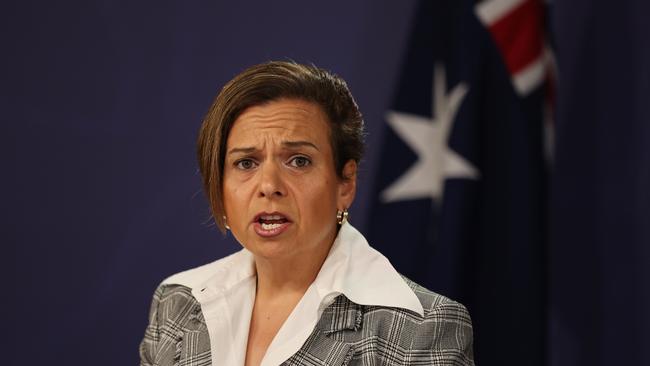NBN Co slashes losses on 10pc annual revenue spike following pricing backflip
Chief executive Stephen Rue says NBN plans are affordable across the board, ahead of an expected showdown with retailers and the competition watchdog.

NBN Co has slashed its losses, helped by a 10 per cent jump in annual revenue amid strong demand for superfast broadband after recently dumping proposed changes that would have locked in price rises over the next decade.
The government-owned company posted revenue of $5.1bn with underlying earnings up 130 per cent to $3.1bn for the 12 months to June 30, in line with its guidance. Its statutory losses more than halved to $1.5bn from a $3.8bn last year.
NBN also revealed it had repaid a further $6.8bn of the $19.5bn Commonwealth loan in the last 12 months, reducing the outstanding balance to $6.4bn.
Average revenue per user — a crucial metric for the project’s profitability — was flat at $46 from the half-year.
Revenue from NBN Co’s business segment also surpassed $1bn for the first time, up 20 per cent from a year earlier.
In late July, NBN Co announced it would withdraw its special access undertaking variation and make “substantive changes” to its pricing proposal, following a letter of revised expectations from the new federal government and stinging criticisms from retailers. The company will publish a new discussion paper later this week.
“We’ve spoken with the government around the new policy framework, we’ve spoken with the ACCC and we’ve read the responses to the consultation paper,” Mr Rue said in an interview.
“I think in my mind, what we what we need to do is obviously reflect on that feedback, but also ensure that that we do remain financially resourced, to enable us to continue to invest in a network to ensure that we deliver good customer service and also meet our obligations, including servicing and refinancing our debt.”
Labor went to the election with a promise of delivering 90 per cent of Australians in the fixed line footprint – over 10 million premises – access to gigabit speeds by 2025, and also to keep the NBN in public hands.
Mr Rue said he disagreed with the notion that internet prices are becoming a cost of living issue for Australians, amid rising inflation and stagnant wage growth, and criticisms from Telstra and other retailers that NBN is effectively pricing consumers out of broadband.
In a recent submission to the ACCC, Telstra said NBN’s current wholesale prices will mean NBN will “become the network for only those who can afford it,” and that “it will not be accessible for many Australians who need it”, amid an ongoing debate about the government-owned company’s business model and its ambitions to hike prices.
NBN Co’s top five retail service providers including Aussie Broadband, Optus, TPG, Vocus and Telstra have asked the ACCC to intervene and set prices for NBN services, after they collectively lost patience with NBN Co.
“I think retail plans are affordable,” Mr Rue said. “If you look at research that we’ve done, you’ll find that for the vast majority of consumers affordability of internet plans is not an issue. It’s not an issue that actually comes up at a community level or that that’s spoken about by the community in terms of affordability of plans.
“What we have to ensure is that we have sufficient financial resources to invest in the network, and that‘s important because the needs of consumers will continue to grow, the need for speed and for reliability will continue to grow.
“You’ve got to invest ahead of time to ensure that we meet those needs of the community going forward. The demands for customer experience is going to continue to grow and we have our obligations obviously to meet as well. So we will be putting forward a discussion paper that I think balances all of those needs.”

NBN Co is set to release a pricing discussion paper at the end of the week after the government sent a letter last month calling for a ‘reset’ on its previous proposals, which would have locked in price rises over the next decade.
The company revealed on Tuesday that the number of premises activated rose from 8 million to 8.5 million, while weather events like the NSW and Queensland floods forced direct network costs up by 10 per cent to $730m.
NBN Co has embarked on a major fibre upgrade program and it said it is on track to make 8 million premises, or 75 per cent of the fixed line network, capable of accessing ultrafast speeds by the end of 2023. The company is also spending $750m to expand its fixed wireless network, to enable 120,000 satellite customers in rural and regional Australia to switch over to faster fixed wireless technologies.
The company raised a further $7bn in bank and capital markets debt during the financial year, including the issuance of a $800m green bond.
“We have accelerated our private debt raising and capital recycling program over the last three years to take advantage of record low interest rates, locking in a series of well-priced medium-term notes. This provides us with a good hedge should interest rates continue to rise in the future,” Mr Rue said.
“It is, however, important that we continue to prudently manage our capital and operating costs and generate consistent, predictable revenue so we can continue to deliver on customer, industry and government expectations as we work to lift the digital capability of Australia.”
Infrastructure expert Sam Pratt, the chief executive of fibre provider Render, said that NBN Co is facing an uphill battle to remain sustainable without either increasing wholesale prices, limiting incremental investment in improved speeds and services, or the government effectively writing-off a significant proportion of NBN’s debt.

“The challenge put forward by Communications Minister Michelle Rowland to reconsider proposed price increases is complicated in that increasing wholesale prices is arguably necessary to fund delivery of the world-class speeds that Australian homes and businesses are craving. However, it is a challenging time to mount this argument given doing so would further strain consumers budgets during a cost of living crisis,” he said.
“NBN Co faces an uphill battle against consumers, the government and the telco industry in demonstrating that higher wholesale prices will allow them to meet Australian demands for world-class connectivity, but in the absence of an alternative, lifting prices may be the least-worst way forward for the average Australian taxpayer. “





To join the conversation, please log in. Don't have an account? Register
Join the conversation, you are commenting as Logout